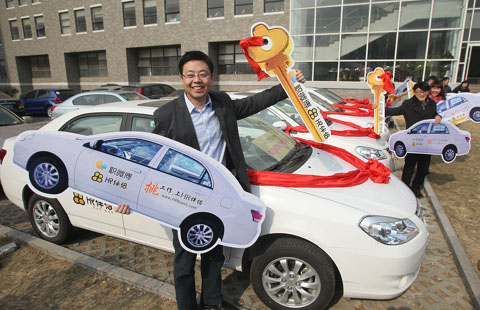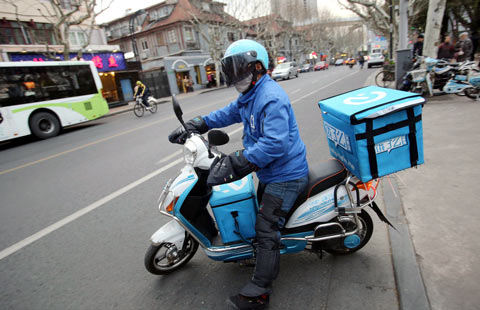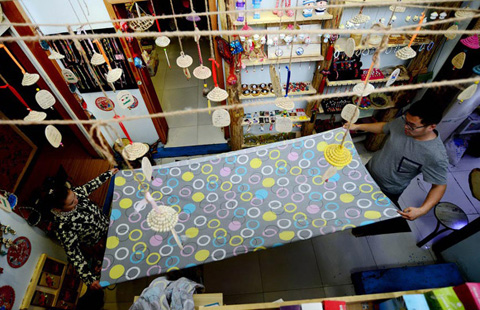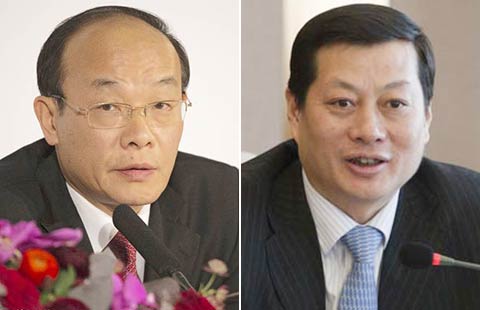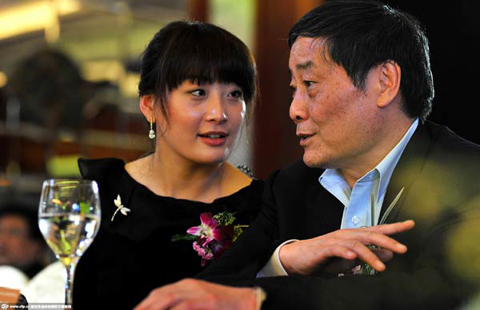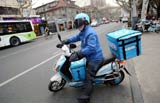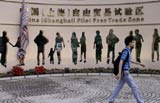Paris is doing its best to rekindle a cooling affair
By LI JING (China Daily) Updated: 2015-05-11 09:39One tourist was said to have missed a flight back to China after having a bag stolen during the 40-minute train ride. Another Chinese visitor was reported to have suffered "a very huge loss", and two other tourists also missed flights home after having property stolen.
More than 10 million overseas tourists visit Paris every year, but Chinese tourists, who are known for carrying large sums of cash, are widely regarded as a prime target for thieves, robbers and crimes of violence.
Last August the news service Bloomberg quoted Jean-Francois Zhou, president of the Chinese association of travel agencies in France, as saying: "Chinese people romanticize France. They know about French literature and French love stories. But some of them end up in tears, swearing they'll never come back."
Chen Xiaowei, 42, who visited Paris last year, said he often heard security reminders broadcast in Chinese in many public areas.
"Security was my biggest worry. Before arriving, I looked at crime in different areas and made security my top priority when booking hotels. Luckily, everything about the trip was safe and sound."
However, it is not just security concerns that are acting as a drag on the flow of Chinese money into France's tourism market.
Chinese tourists have also been increasingly reluctant to spend large sums as a result of their government's crackdown on official corruption and profligate spending, Zhou was quoted as saying.
It is revenue that France, one of the world's most popular tourist destinations, can ill afford to miss as it struggles with a depressed economy.
China has been the world's largest outbound tourism market since 2012, with travelers reputed for their hefty spending.
The encouraging thing for European business is that a weak euro has made shopping in eurozone member countries cheaper for Chinese tourists, who are world champions in buying luxury goods. Their spending rose 122 percent in March compared with that of last year, and 52 percent in February compared with last year, bringing the increase for the first quarter to 67 percent, the international tax refund company Global Blue said in a report published on April 20.
Exchange rate movements have led to significant regional price differences, with identical luxury items sometimes costing more than 50 percent less in European capitals than in big Chinese cities, Globe Blue said.
This month, Laloux led a delegation of 20 Parisian companies on a road show from Guangzhou, capital of Guangdong province, to Shanghai and Beijing to promote Paris as a destination for Chinese travelers. The companies included the upmarket department store Printemps and the stage entertainment company Crazy Horse.
"There are different markets in China, because China is so huge," Laloux says.
"We are looking very carefully at the airlines (from China to Paris). Six cities in China have direct flights to Paris."
Laloux said Chinese are the biggest-spending visitors in Paris, estimated to spend an average of 1,500 euros ($1,670) each on shopping, mainly on designer brands.
"It is cheaper for Chinese to buy luxuries in Paris, and throughout the year they get a tax refund of 12 percent."
In addition to drawing Chinese to Paris with luxury brands, the city is putting more effort into drawing them with cultural attractions. The newest ones include the Louis Vuitton Foundation, dedicated to contemporary art, which opened in October, the Paris Philharmonia, which opened in January, and the Picasso Museum, which reopened in October after a five-year renovation.
As Chinese increasingly travel independently, the bureau is also adapting its market strategies, working more closely with online travel agencies and promoting its products in China's social media, Laloux said.
- Shanghai index surges 3% after rate cut
- Smartphone market falls for first time in six years
- Apple announces new environmental initiatives in China
- Alibaba steps up overseas investment
- Amazing employee benefits
- More rate cuts on the way, say analysts
- Is the market resilient enough to withstand the challenges ahead?
- Sinotruk retains positive sales momentum in overseas market
